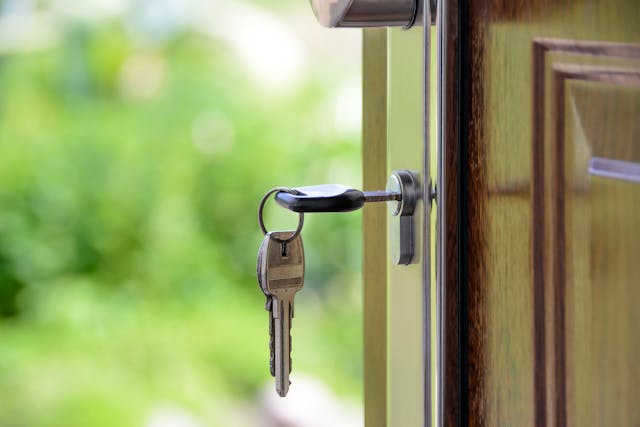
Buying a home when you know another move is on the horizon takes strategy and foresight. You want comfort today, but also flexibility for tomorrow. The process requires clarity on how to choose a property when you know you’ll move again. With the guidance of professionals like urban living consultants, buyers can make decisions that are practical yet forward-looking. The right plan transforms uncertainty into opportunity and helps you stay confident about the path ahead.
Understand Your Future Mobility
Life rarely follows one straight path. Jobs shift, families grow, or new cities call. Each of these changes can influence where you live. When you already expect a move, your decision-making must reflect both short-term comfort and long-term strategy. Think of the home not just as a place to live but as a bridge toward your next step. This mindset helps you stay realistic and prevents regrets later.

You need to understand that this home will be the bridge between now and your future
Prepare Today for Tomorrow’s Move
When you know this home won’t be your last, it makes sense to think one step ahead. Choosing a property is only part of the plan. You also need to keep the bigger picture in mind, including how you will eventually leave it. One practical step is holding on to the contact details of the movers who helped you settle into your current home. Reliable movers who already know your needs can help you minimize stress while relocating again. Professionals understand how to handle unique moving situations, and they can give you an extra layer of security.
Not every move looks the same. Timelines, destinations, and personal circumstances shift. With professional guidance, you avoid last-minute confusion and can focus on selecting a property that not only fits your life now but also supports a smoother transition when the time comes.
Think About The Location and Resale Potential
A property’s location will always hold weight. Buyers often overlook this detail when they are eager to settle quickly. Yet location can decide how fast the home sells or rents once you are ready to leave. Strong neighborhoods near schools, transit, and major job markets hold steady demand.
For clarity, here are the key points to evaluate:
- Distance to schools, hospitals, and public transport
- Local property value trends and growth forecasts
- Community features such as parks, shopping, and dining
- Safety ratings and neighborhood reputation
Each of these factors shapes your return on investment. If you understand how to choose a property when you know you’ll move again, you avoid being tied down later. The goal is not just to meet today’s needs but also to appeal to the next buyer or tenant.
Prioritize Property Features That Travel Well
Not every home feature has the same staying power. Some upgrades attract attention while others add little to resale appeal. For example, a modern kitchen or updated bathroom often secures stronger offers. Meanwhile, unusual layouts or highly personalized finishes may discourage buyers.
Think in terms of universal appeal. Bright natural light, neutral flooring, and flexible room spaces always work better than overly custom designs. If your property can match many lifestyles, it becomes easier to sell or rent. This simple foresight saves both time and stress when relocation arrives.
Stay Flexible in Financing
Your financing terms can either hold you back or set you free. Some buyers only focus on the lowest monthly payment. That approach can create trouble if you must move sooner than expected. Flexible loan options like portable mortgages or contracts with prepayment privileges are better choices.
Shorter loan terms can also reduce financial pressure. They give you equity faster, which helps if you need to resell quickly. At the same time, you should confirm whether your lender offers clear exit conditions. Transparent terms ensure you avoid unpleasant surprises if your career or lifestyle shifts. Smart financing does not just cover your present—it prepares you for the move that will come.

You need to make smart decisions now, because they will impact your future
Weight Ownership vs. Investment
Your goals matter when you purchase a home that you may leave soon. Do you want a comfortable residence, or do you expect strong returns? Both approaches can work, but clarity is essential. If lifestyle drives the choice, focus on features that enrich daily life. If investment matters most, choose with rental appeal or resale strength in mind.
It helps to think like both a resident and a future seller. A property with wide appeal balances those priorities. You may enjoy it now while knowing it remains attractive later. If you master this perspective, you will understand how to choose a property when you know you’ll move again.
Plan for the Ongoing Costs
A property’s value depends on more than the purchase price. Long-term upkeep plays a major role in overall cost. Roof repairs, system upgrades, and landscaping all add up. Ignoring these expenses can reduce resale value and slow down future sales.
This is why you should plan for long-term home maintenance costs before committing. Set aside a portion of your budget for repairs. Ask about recent upgrades and warranties. Understand the age of key systems, such as plumbing and electrical. The more you know in advance, the fewer surprises later. Informed planning not only saves money but also strengthens buyer confidence when the time comes to move again.
Smart Buying Decisions for the Future
Short-term buyers benefit from strategic thinking. Homes with universal layouts and neutral finishes sell faster. Properties in desirable school districts or close to public transport attract steady demand. These traits matter more when you cannot predict how long you will stay.
When reviewing listings, weigh each choice against broader appeal. Avoid features that only suit very narrow tastes. Instead, select homes that match multiple lifestyles. In this way, you account for the factors to consider when buying a property that matter to future buyers as much as to yourself. This approach protects your investment and reduces risk.

You need to understand that this home will be the bridge between now and your future
Now You Know How To Choose a Property Even Though There Will Be Future Moves
Choosing wisely creates freedom. If you learn how to choose a property when you know you’ll move again, you can reduce stress and protect your finances. Every choice becomes less about permanence and more about opportunity. Stay clear on your goals, understand the true costs, and think like both a resident and an investor. With the right strategy, every move feels less like disruption and more like progress.
KW: Choose a property when you know you’ll move again
Meta description: Discover how to choose a property when you know you’ll move again, with expert tips for smart buying, costs, and future planning.
Author bio:
Clara Jensen is a content writer and a digital nomad who has been relocating every few years while balancing work and lifestyle. With firsthand experience in choosing homes that suit both present needs and future moves, Clara shares practical insights to help others make smarter property decisions and smoother transitions.


